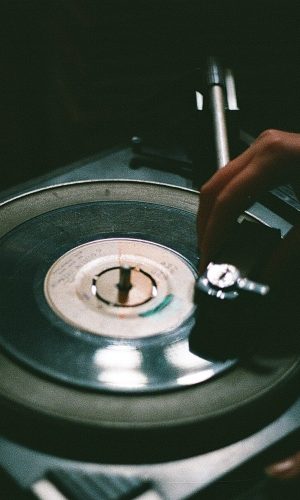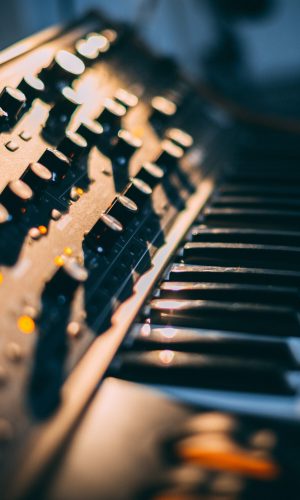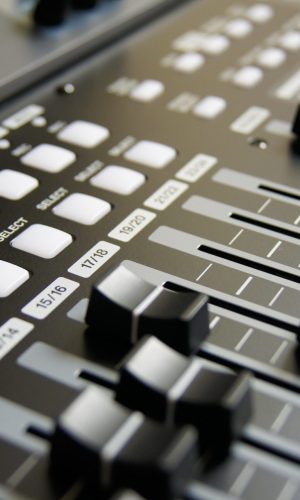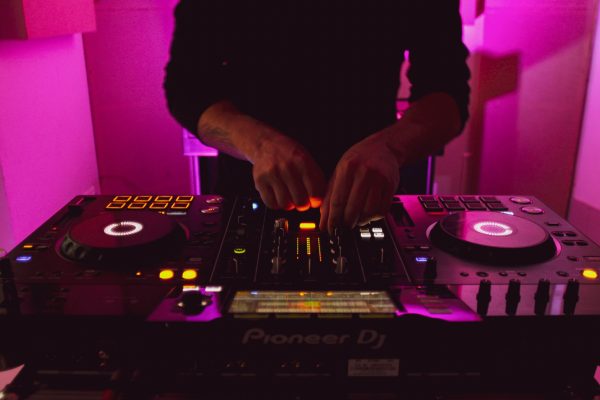Discover the Art of Creating Electronic Music: Your Educational Guide
Introduction to Electronic Music


Why Learn Electronic Music?
Why should you learn electronic music? The reasons are manifold. On a personal level, creating music can be a rewarding form of self-expression and a powerful outlet for creativity. It provides a medium through which you can convey emotions and ideas that are otherwise difficult to express.
From a career perspective, the music industry, particularly the electromusic industry, offers a multitude of opportunities. You could become a music producer, DJ, sound designer, or music educator. Learning electromusic could also be the first step to creating your own album or even starting your own music production company. You can order essays online in this exellent sevice EssayHub.com on different topics include music.
Even if you don’t aspire to work in the music industry, the skills you acquire while learning electronic music can be beneficial. It can enhance your appreciation for music, improve your technical skills, and even develop your problem-solving abilities as music production often involves overcoming technical and creative challenges.
Fundamentals of Electronic Music
Electronic music production rests on several key fundamentals. Firstly, sound synthesis – the process of creating sound electronically – is at the heart of electromusic. This involves using synthesizers to create sounds that can be shaped and controlled to suit the music you are creating.
Next is the concept of beat making. Beats are the rhythmic backbone of your music. Understanding how beats work, how to create different beat patterns, and how to manipulate them is critical for creating compelling music.
Melody construction is another fundamental aspect of electronic music. A melody is a sequence of notes that make up the main theme of your music. It’s the part of the song that people often remember and hum along to.
Finally, understanding how to use Digital Audio Workstations (DAWs) is critical. DAWs are software platforms that allow you to record, edit, and produce music. Popular DAWs include Ableton Live, Logic Pro, and FL Studio.

Techniques and Tools in Electronic Music
Creating electromusic involves various techniques. One such technique is sampling, where a portion of a sound recording is reused in a different piece of music. Sequencing is another important technique, involving the arrangement of musical sections in the DAW to create a full track.
Sound design is an art in itself. It’s the process of creating, manipulating, or enhancing audio elements in your track. Sound design can make your track unique and memorable.
When it comes to tools, your most crucial piece of software will be your DAW. However, there are also many hardware tools that electro musicians use, such as MIDI controllers, synthesizers, and drum machines. These tools can give you more tactile control over your music production process.
Top Online Platforms to Learn Electronic Music
There are several excellent online platforms to learn electromusic. Coursera offers a “Electronic Music Production” course in partnership with Berklee College of Music. This course covers all the fundamentals of electromusic and provides a certificate upon completion.
Masterclass, known for its celebrity-led classes, offers a course led by famous DJ and producer, Deadmau5. This course provides insights into his approach to producing electro music.
Skillshare also hosts several courses on music production, covering a wide range of topics, from the basics to more specialized techniques.








Music Schools and Courses for Electronic Music
For those who prefer structured learning in a traditional setting, many universities and music schools offer courses in music production. Berklee College of Music, for example, offers a bachelor’s degree in Electronic Music Production and Sound Design.
The School of Audio Engineering (SAE) provides a variety of short courses, diplomas, and degree programs focused on music production. These institutions not only provide comprehensive curriculum but also offer networking opportunities with industry professionals.

Success Stories in Electronic Music
There are numerous success stories in the world of electromusic. Artists like Daft Punk, Skrillex, and Deadmau5 started from humble beginnings, learning the art of music before making it big.
Daft Punk, for instance, are known for their innovative use of synthesizers and samplers, creating a unique sound that blends disco, funk, and house music. Skrillex popularized the dubstep genre with his unique sound design and aggressive basslines.
These artists prove that with the right skills, creativity, and determination, it’s possible to carve a successful career in the electronic music industry.

Get Started on Your Electronic Music Journey
Ready to embark on your electronic music journey? Start by familiarizing yourself with the genre. Listen to a wide range of electro music to understand its diversity and to find out what styles resonate with you. Next, learn the basics. Understand the fundamentals of sound synthesis, beat making, and melody construction.
Choosing the right DAW is a crucial step. Research the different options available and select one that suits your needs and budget. Many DAWs offer free trials, so take advantage of this to find the one that’s right for you.
Remember, learning electro music is a journey. Don’t rush the process. It’s okay to make mistakes and to feel overwhelmed at times. What’s important is to keep learning, experimenting, and having fun. With perseverance and passion, you’ll be able to create your own unique sound and express yourself through the art of electronic music.
Useful Tips
Essay services for example, best ai for writing college essays, are a helpful resource for students tackling difficult assignments. They provide structured examples that improve understanding and ensure assignments meet academic standards.